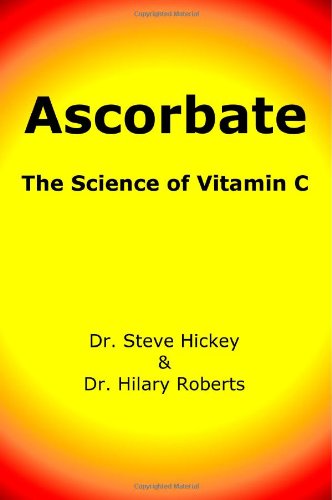Ascorbate: The Science of Vitamin C ebook
Par jackson santos le lundi, juillet 4 2016, 13:11 - Lien permanent
Ascorbate: The Science of Vitamin C. Steve Hickey Hilary Roberts

Ascorbate.The.Science.of.Vitamin.C.pdf
ISBN: 1411607244,9781411607248 | 264 pages | 7 Mb

Ascorbate: The Science of Vitamin C Steve Hickey Hilary Roberts
Publisher:
If there is any vitamin we have all heard about, it is vitamin C. All of our vitamin C serums are jam packed with THD Ascorbate, the most powerful form of Vitamin C. According to Tatiana Kononov, director of research and development for Revision Skincare, “One of the ingredients breaking through now is the THD ascorbate, a vitamin C derivative that's unique in that its extremely stable and functional. Ascorbate: The Science of Vitamin C - Dr. For acne, however, vitamin C when it is used to keep immune responses in check. Researchers at Mount Sinai School of Medicine have shown that Vitamin C actively protects against osteoporosis, the findings are published in the October online edition of PloS ONE. Without dietary vitamin C, they saw that tissue concentrations of ascorbate became deficient weeks before the onset of scurvy symptoms in the mice, similar to humans. I spoke to Dr Steve Hickey who (with Dr Hilary Roberts) has just published a new book called “Ascorbate: The Science of Vitamin C”. Despite the fact that most mammals can synthesize ascorbate (Asc), humans (along with other primates, bats, and guinea pigs) are unable to make vitamin C as a result of a mutation to the gene encoding L-gulono-1,4-lactone oxidase, the last enzyme in the Asc biosynthetic pathway [1]. It is the most powerful antioxidant in the world and has led to several scientific breakthroughs in skin care. Various vitamin C and multivitamin supplements contain ascorbic acid or ascorbate, which is the outer ring that surrounds the real vitamin C complex. Although The National Academy of Sciences has established 90 mg/day (for adult males) and 75 mg/day (for adult females) as the Recommended Dietary Allowance (RDA) for vitamin C [9]. Most people take vitamin C to boost immunity.